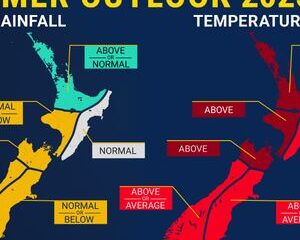Business
University Students Face Legal Risks for Promoting Gambling Sites

University students in New Zealand have received warnings from the Department of Internal Affairs regarding their promotion of overseas gambling websites on social media. This action follows the identification of ten students, primarily from the universities of Otago and Canterbury, who were found endorsing sites such as Rainbet and SpinBet in exchange for financial incentives.
The crackdown on this practice comes after internet personality Millie Elder-Holmes was fined $5,000 in May for similar promotional activities. Investigations revealed that numerous Instagram accounts, boasting thousands of followers, featured students posting videos of themselves wagering significant sums of money on these offshore platforms. Many posts included links, logos, or referral codes urging viewers to register with these gambling sites. Some students openly discussed their motivations for gambling, citing expenses like parking fines, petrol, and even student loan payments, which often totalled around $300.
In an effort to address these concerns, Vicki Scott, director of gambling regulatory services at the Department of Internal Affairs, noted that the department is actively investigating complaints related to these promotions. “The students we’ve spoken to have been co-operative, and several have taken immediate steps to remove the content,” Scott remarked. She emphasized the seriousness of the situation, stating, “Promoting overseas gambling websites is illegal and can result in a $5,000 infringement fine.”
While online gambling is legal for New Zealanders, advertising these platforms within the country remains prohibited. Andrée Froude, director of advocacy and public health at the Problem Gambling Foundation, expressed concerns about the use of social media to bypass this advertising ban. She cited past instances, such as when Brendon McCullum was used to promote the site 22Bet, prompting Google to intervene and remove the ads.
The involvement of university students in promoting online gambling raises alarms, particularly as they are often financially vulnerable. “They are targeting young students who might not have a lot of extra money to spend,” Froude stated, deeming the situation “appalling.”
Attempts to gather responses from Rainbet and SpinBet were unsuccessful prior to publication.
Government Response and Future Regulations
The New Zealand government is preparing to implement a licensing regime for online gambling, which would allow up to 15 online casinos, including some offshore companies, to operate legally within the country. Companies that fail to secure a license could face fines of up to $5 million. Brooke van Velden, the Internal Affairs Minister, acknowledged the issue, stating, “I am aware of cases of people, who appear to be university students, promoting online casino gambling through their social media accounts.”
She indicated that the department is investigating these cases and may impose penalties, including formal warnings or fines, as deemed appropriate.
Concerns have also been voiced by Francisco Hernandez, the Green Party’s tertiary education spokesperson. He warned that the introduction of overseas casino licenses could lead to an increase in gambling among New Zealanders. “There is a risk legislation like that could end up mainstreaming the idea of online gambling,” he stated, emphasizing the necessity for local operators who comply with regulations to ensure responsible gambling practices.
According to research from the AUT gambling and addictions research centre, led by Maria Bellringer, the new legislation will permit offshore operators to legally advertise in New Zealand for the first time. The most recent New Zealand Gaming Survey revealed that individuals aged 15 to 24, predominantly males, are the most likely demographic to engage with online casinos. “I imagine the harms are going to increase and particularly to our young people,” Bellringer cautioned.
As online gambling becomes more accessible, the potential for harm among young people—who are typically more exposed to the internet and gaming—is a significant concern. The prevalence of these gambling sites poses a risk, as they often target financially vulnerable individuals with appealing marketing strategies. The implications of this trend could result in increased gambling-related issues across the country.
As discussions surrounding the regulation of online gambling continue, it remains essential for students and the broader community to understand the legal ramifications and potential risks associated with promoting these platforms.
-

 World1 week ago
World1 week agoPrivate Funeral Held for Dean Field and His Three Children
-

 Top Stories2 weeks ago
Top Stories2 weeks agoFuneral Planned for Field Siblings After Tragic House Fire
-

 Sports3 months ago
Sports3 months agoNetball New Zealand Stands Down Dame Noeline Taurua for Series
-

 Entertainment3 months ago
Entertainment3 months agoTributes Pour In for Lachlan Rofe, Reality Star, Dead at 47
-

 Entertainment2 months ago
Entertainment2 months agoNew ‘Maverick’ Chaser Joins Beat the Chasers Season Finale
-

 Sports3 months ago
Sports3 months agoSilver Ferns Legend Laura Langman Criticizes Team’s Attitude
-

 Sports4 weeks ago
Sports4 weeks agoEli Katoa Rushed to Hospital After Sideline Incident During Match
-

 World2 weeks ago
World2 weeks agoInvestigation Underway in Tragic Sanson House Fire Involving Family
-

 Politics2 months ago
Politics2 months agoNetball NZ Calls for Respect Amid Dame Taurua’s Standoff
-

 Top Stories2 weeks ago
Top Stories2 weeks agoShock and Grief Follow Tragic Family Deaths in New Zealand
-

 Entertainment3 months ago
Entertainment3 months agoKhloe Kardashian Embraces Innovative Stem Cell Therapy in Mexico
-

 World4 months ago
World4 months agoPolice Arrest Multiple Individuals During Funeral for Zain Taikato-Fox


















